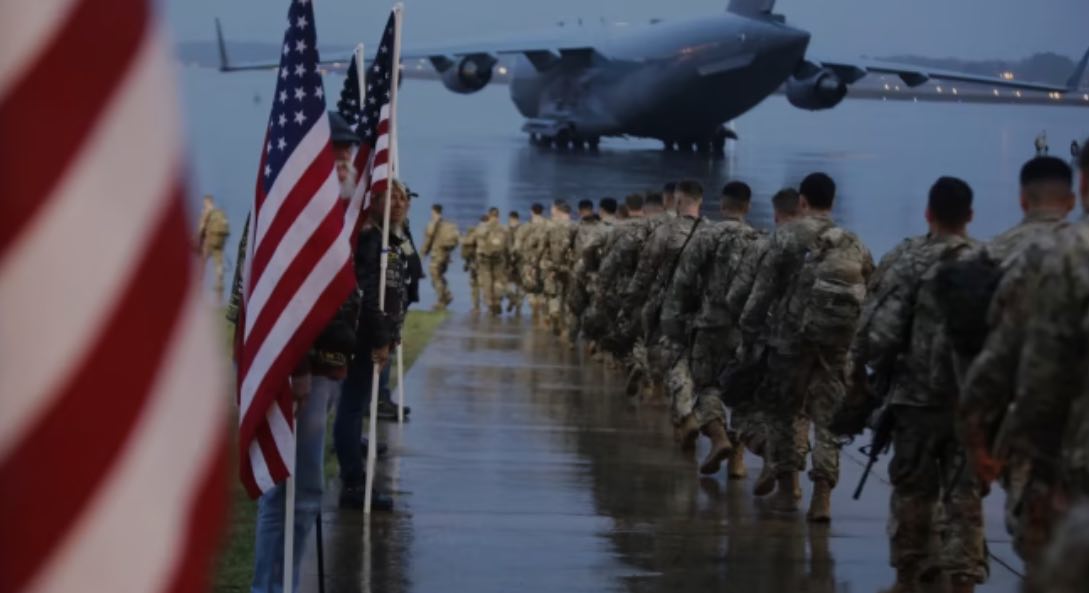To Stay or Not to Stay: America’s Issue in Iraq
To Stay or Not to Stay: America’s Issue in Iraq
The file of the U.S. military presence in Iraq within the framework of the international coalition against terrorism has long been a subject of extensive discussions within the Coordination Framework of Iraq’s Shia political forces. Two members of the Coordination Framework told Al-Araby Al-Jadeed that the U.S. presence might be a stabilizing factor in Iraq. Baghdad and Washington agreed in early September of this year to end the international coalition’s mission by the end of September 2025, with the end of the coalition’s activities in Syria set for September 2026.
Two members of the Coordination Framework in the Iraqi parliament said there is a plan to review Iraq’s situation and foreign policy in light of recent regional developments and the collapse of Bashar al-Assad’s regime in Syria, which includes the issue of ending the U.S. military presence. One of these parliament members stated that given the regional tensions, it must be said that the U.S. presence might be a stabilizing factor in Iraq and beyond in its politically and security-wise turbulent environment.
Another Iraqi parliament member emphasized that the U.S. has prevented the Zionist regime from attacking Iraq and practically has control over Iraq’s airspace. He added that there are ongoing negotiations regarding the extension of coalition forces’ presence or their end by late 2025, but nothing has been clarified yet, as the new U.S. administration’s approach towards Iraq and regional issues is still unknown. This parliament member said that the U.S. presence in Iraq might be a significant barrier against the Zionist regime’s attacks on regional countries after Lebanon, Syria, and Yemen.
He pointed out that Iraq is concerned about the repercussions of the situation in Syria and its impact on Iraq and the issue of ISIS and its renewed activity. According to Middle East News, this Iraqi parliament member emphasized that there are parties within the government and the Coordination Framework that wish for the international coalition’s presence to be extended until stability is achieved across the region. On the other hand, Aqeel Al-Rudaini, spokesperson for the Nasr Coalition led by Haider al-Abadi, one of the leaders of the Coordination Framework, said that the conditions surrounding Iraq, especially after the collapse of Bashar al-Assad’s regime in Syria, are unstable and this issue brings concern to Iraq.
He said that the issue of extending the international coalition forces’ presence has not been officially raised yet, but it is very possible that new understandings between Baghdad and Washington regarding the future of the international coalition might emerge in light of recent regional developments. The spokesperson for the Nasr Coalition indicated that there is a possibility of extending the international coalition’s presence in Iraq, and this issue is currently linked to imminent regional developments.
Al-Rudaini said that if Iraq makes such a decision, it will be based on Iraq’s supreme interests and will receive political support. He added that even armed groups consider Iraq’s interests, and when the government decides to extend the international coalition’s mission in Iraq, there will certainly be opponents, but the government’s decision will take precedence.
On the other hand, Nizar Haidar, an Iraqi researcher residing in Washington, said that Iraq, in recent weeks, has requested protection from the U.S. against the repercussions of the situation in Syria on its security, meaning that Iraq practically needs the international coalition for protection against potential threats. This is an indication that the power Iraq possesses under various official titles is not sufficient. He added that it is Iraq’s right to request the extension of the U.S. forces’ mission based on previous agreements between the two countries, and when it deems this matter necessary for any reason, the decision ultimately belongs to the government.
Haidar predicted that Iraq would request the extension of the international coalition’s mission in Iraq in the upcoming stage following regional developments, especially considering that Iraq believes this presence is a security and military necessity and can protect Iraq from future Zionist regime attacks.
On the other hand, Ihsan al-Shammari, head of the Center for Political Thought Research in Baghdad, said that a U.S. withdrawal from Iraq is essentially not on the table, and this is part of a maneuver because the U.S. has told the Iraqi government that there will be no withdrawal from Iraq, but the issue of presence might be reviewed through bilateral agreements. He explained that delaying the end of the international coalition’s mission is more related to Iraq than the U.S., as Iraq wants the international coalition to remain due to concerns about the regional situation, particularly Syria.
Al-Shammari stated that if Iraq wishes to extend the international coalition’s presence, it is due to the rise of armed groups in Syria, which the Al-Sudani government described as terrorist groups, resulting in the international coalition’s presence largely preventing security chaos in Iraq.
He said that the Coordination Framework believes that the coalition’s stay in Iraq and not requesting the withdrawal of its forces might significantly delay widespread Zionist regime attacks against armed groups, as the U.S. has succeeded in delaying these attacks, not canceling them.

